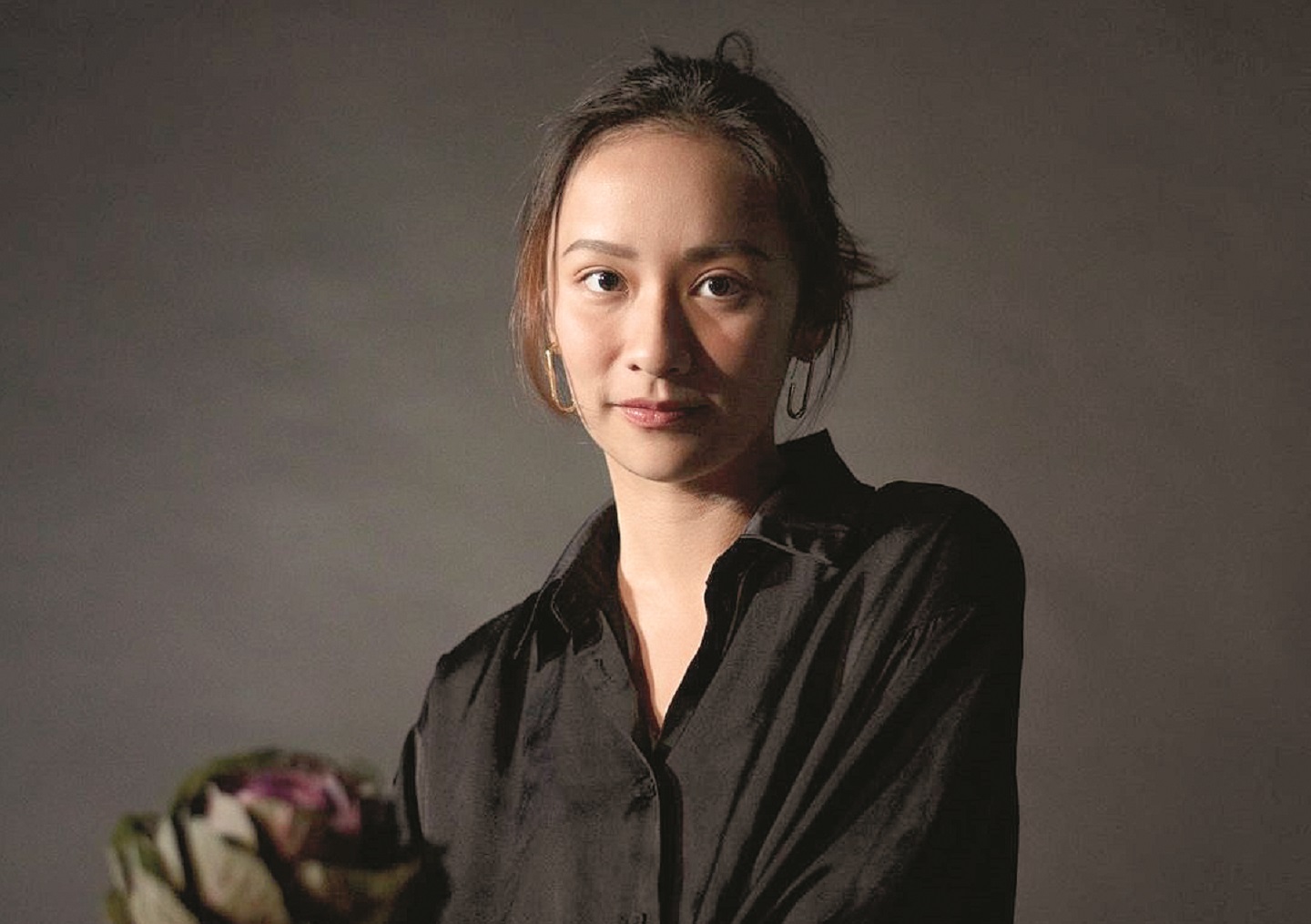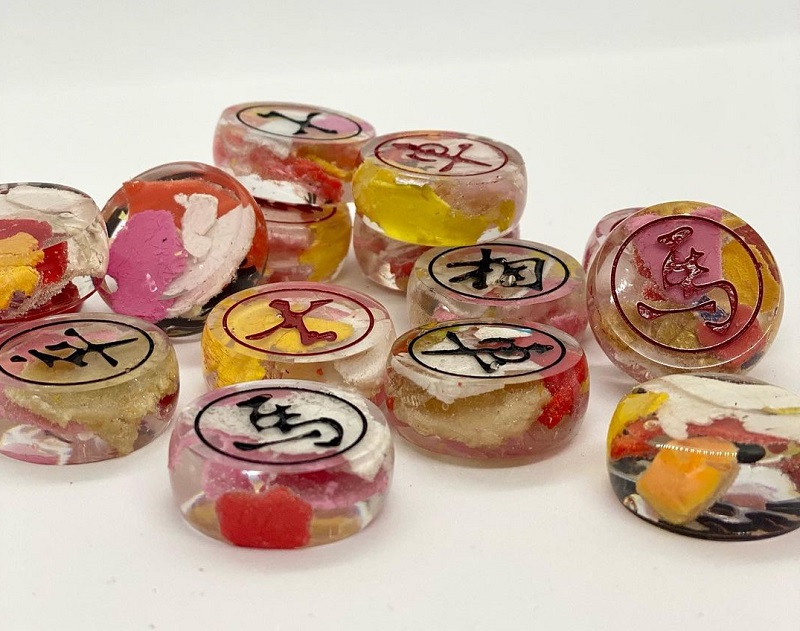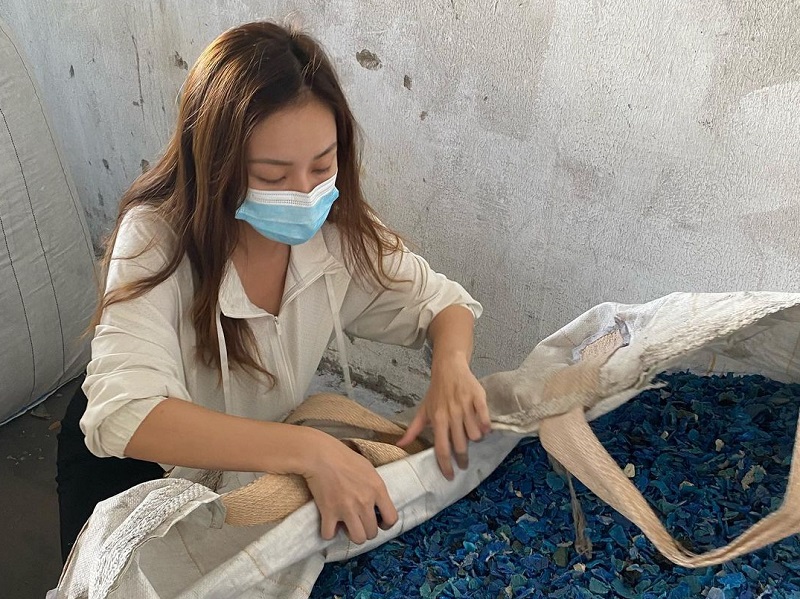
Founder of Purpose Plastics Abe Lim (All photos: Purpose Plastics)
Did the pandemic teach humanity to be aware of the effects of industrial pollution on the environment? Yes. Do people care enough now to pay more attention to tackling the waste and pollution that are affecting the planet? Not really.
“With the pandemic — a matter of life and death — safety is at the forefront. Everyone is mindlessly using single-use plastics such as face masks, PPEs, test kits and plastic utensils because they care about not being infected. For example, reusing plates or cups means risking exposing ourselves to lingering viruses and bacteria,” says Purpose Plastics founder and CEO Abe Lim.
Remembering that the late King of Pop Michael Jackson said, “I’m starting with the man in the mirror, I’m asking him to change his ways,” Lim did exactly that when she observed the amount of single-use plastics she had been using from food deliveries and groceries during the lockdowns of the past two years. “After resorting to a lot of reading and talking to friends in the industry, I realised this was a big problem indeed. Imagine, there were millions of people who were doing what I did.”
As she continues to learn about plastics, she realises that reusing and recycling the material is easier said than done. “This ties back to plastic manufacturers. For example, when they are supposed to create bottles using polyethylene terephthalate, they mix the component with other aggregations like PVC in order to cut costs. This actually spoils the recycling industry because plastics should not be made from different materials. People think we can simply recycle plastics, but it is not as easy as that.”
Lim established Purpose Plastics in March last year, hoping to dedicate the business to repurposing and transforming plastics into practical home décor items and fashion accessories. While browsing through Spotify, she came across an album by Canadian singer Justin Bieber called Purpose, and she settled for that word as it denotes her mission of giving plastics a new purpose.
When she started, her plastics supply came from her own bins. She then collected from family, friends and neighbours before approaching recycling centres and manufacturers who had plastic they wanted to dispose of.
227699960_256714802658097_4482505861120311697_n.jpg

“There are plastics that can be recycled and those that cannot. Apparently, factories have to pay if they want to get rid of the offcuts. So, I source the materials from them for free. Our products are made of upcycled plastics that recyclers don’t want or cannot be recycled,” Lim says.
The waste collected is processed at a factory in Ipoh, where they are cleaned, sorted by colours and shredded into smaller pieces. The scraps are then transformed into small goods such as organisers, coasters, candle holders, Chinese chess sets, earrings and trinket boxes. “When deciding what item to make, functionality always comes first. It is up to our creative director to decide on the colour combination of the products,” Lim says.
Resin sourced from an art supplier is used to mould the crushed pieces together into usable objects. “A lot of people say resin is not environmentally friendly. But, our goal is to give a new lease of life to plastics [that are going to the landfill] by turning them into something functional so they can be used for a longer period of time. Resin helps us achieve that,” Lim says.
Purpose Plastics is run by Lim, together with four others. While the team mainly handles administrative work, it hires refugees on a project basis to help with production. The green enterprise makes 1,000 products per batch, which are restocked in the first week of every month. “When we get a big order, we use their services and commission them. I want to provide them a quality lifestyle by presenting them with the opportunity to learn and work.”
Lim is currently reading law in the UK. She intends to move the manufacturing facility to Kuala Lumpur as soon as she finishes her studies sometime this year. The Ipoh factory has a low operating cost but she plans to make workshops an integral part of Purpose Plastics. As most of her customers are based in KL, she wants to open its factory doors to those who are keen to learn.
228414782_2648935965403106_8274166624754405555_n.jpg

Lim also wants to share her knowledge about the environment and climate change with a bigger audience. In conjunction with COP26 (held last November), Purpose Plastics worked with the Ministry of Environment and Water to hold a three-hour workshop that broke down the issues presented in a 2,000-page report by the Intergovernmental Panel on Climate Change.
“The report is very scientific and technical and not everyone can understand it. My friends and I who attended COP26 played the card game, Climate Fresk with the general public to help people comprehend the complicated issues better. By playing the simple game, they could learn about climate change and its impacts in under three hours.”
Moving forward, Lim hopes to organise more workshops where children and adults alike can come together and have a conversation about what they can do to make an impact. “I want people to be integrated in the process and be more mindful of how they can contribute.”
This article first appeared on May 9, 2022 in The Edge Malaysia.


